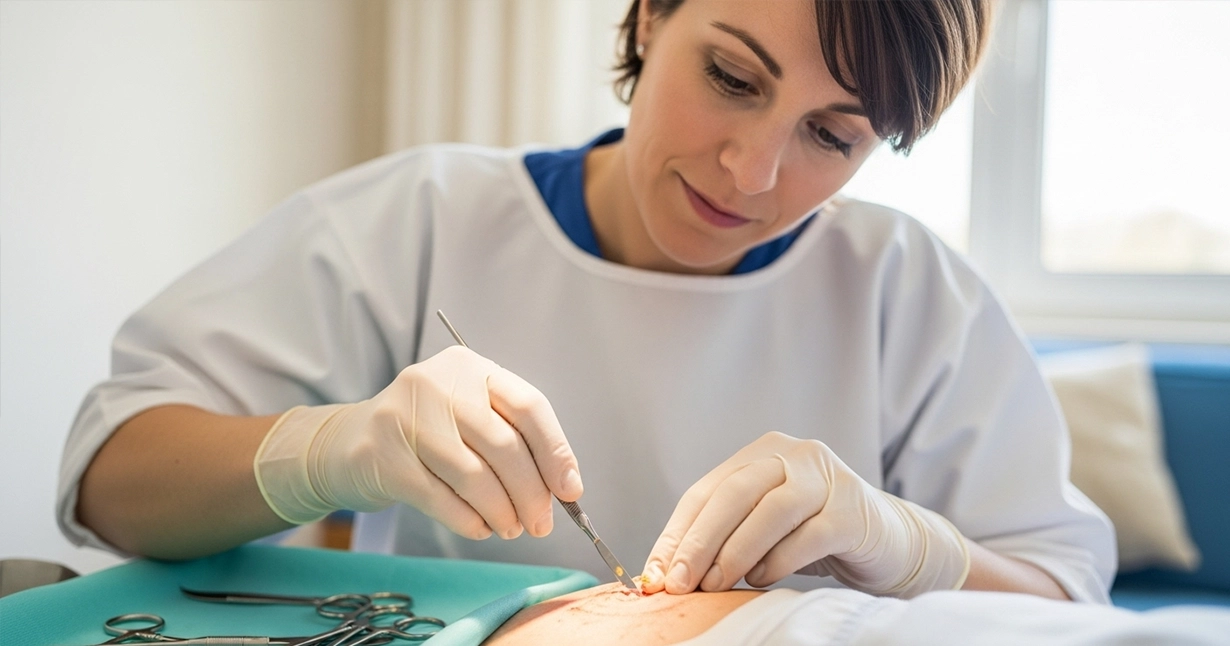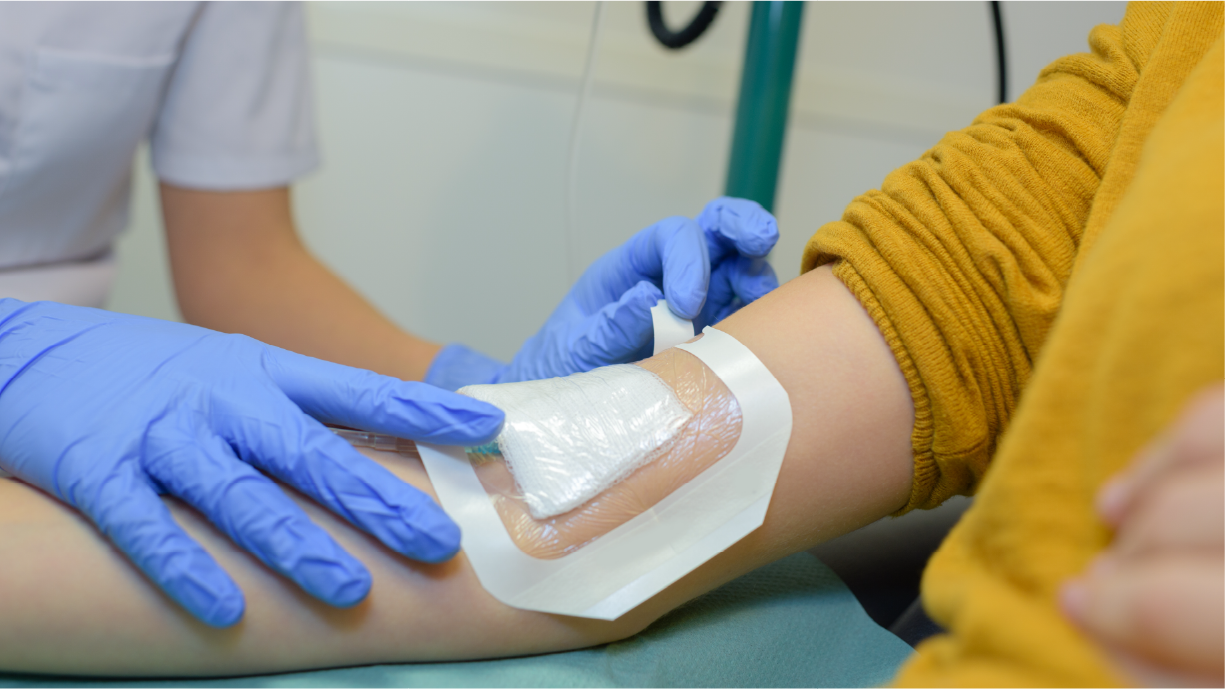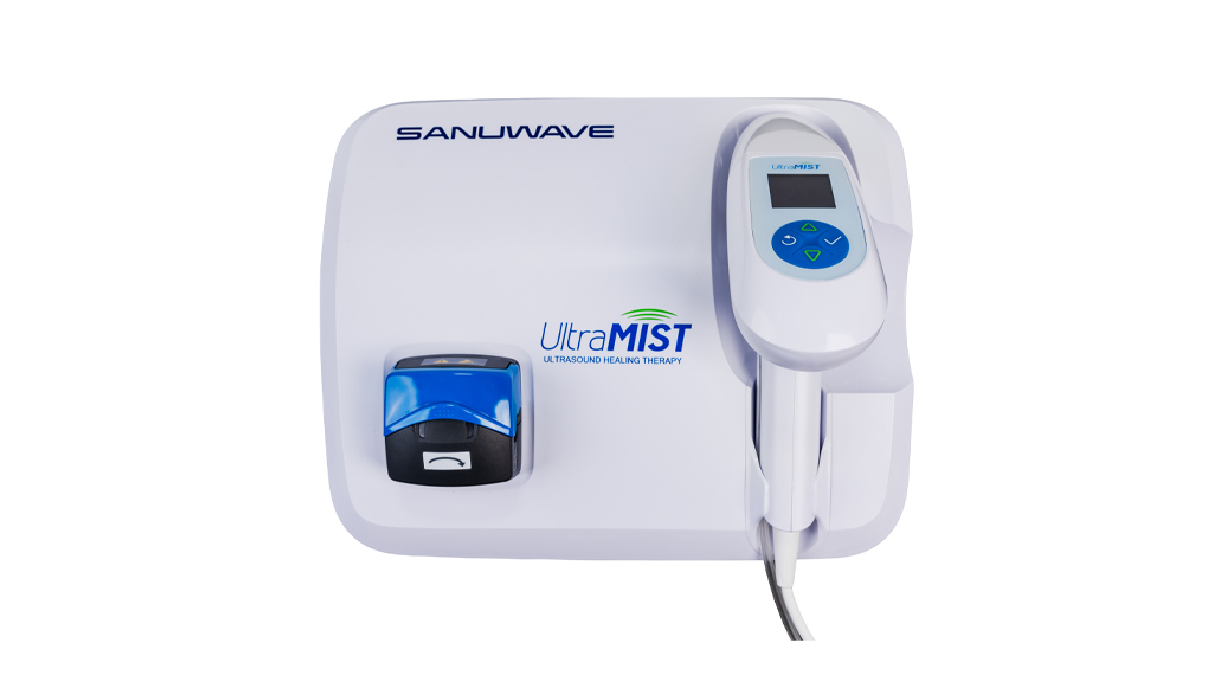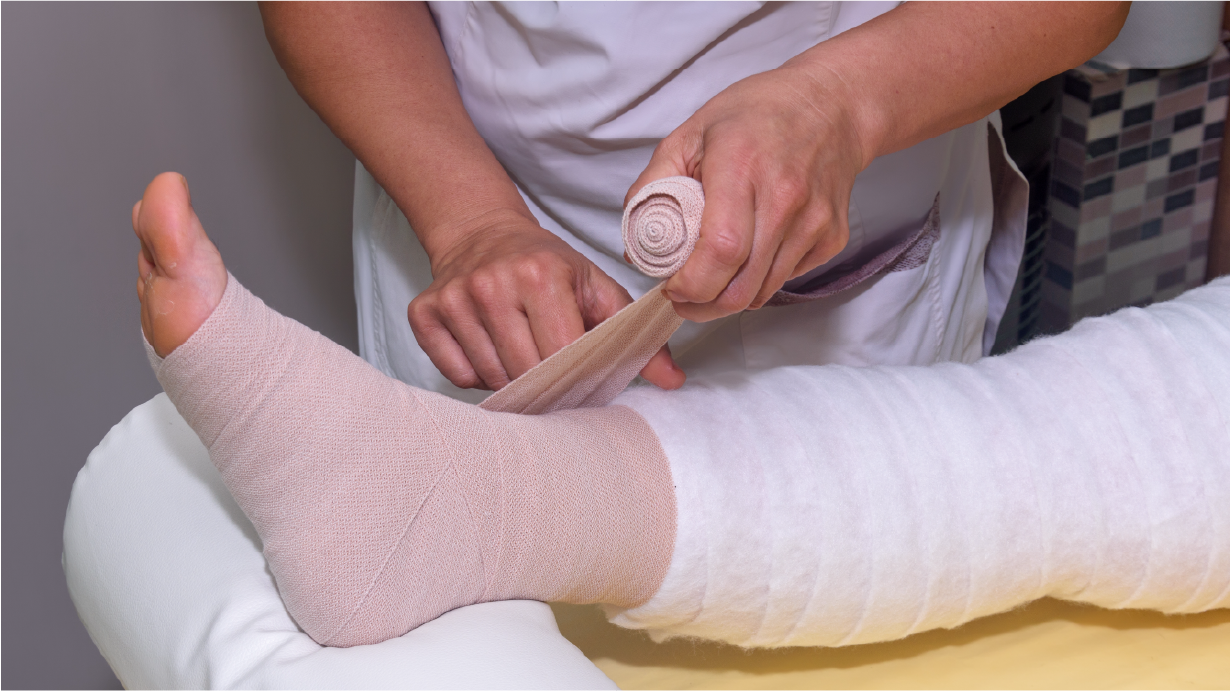Sharp Debridements
Sharp debridement is often described as one of the most important interventions in wound care, providing benefits that no topical treatment alone can achieve. The procedure uses sterile instruments such as scalpels, scissors, or curettes to selectively remove dead (necrotic), infected, or damaged tissue from a wound. This creates a clean wound bed with healthy, well-perfused tissue that can properly support the healing process. At Wound Wellness, our nurse practitioners have extensive training and experience in debridement techniques, allowing them to precisely distinguish between viable and non-viable tissue while preserving healthy structures. This expertise ensures thorough removal of barriers to healing while maintaining the integrity of surrounding healthy tissue.
The benefits of sharp debridement extend far beyond simply cleaning the wound. By removing dead tissue and bacterial biofilms, the procedure significantly reduces the infection risk that often complicates chronic wounds. Debridement stimulates the wound's healing response, triggering the release of growth factors and encouraging the formation of healthy granulation tissue. It also allows for proper assessment of the wound's true dimensions and characteristics, which might otherwise be obscured by necrotic material. For many patients with chronic wounds, regular debridement sessions are a cornerstone of effective care, helping to maintain a healing trajectory that other treatments build upon.
Our approach to sharp debridement reflects our holistic wound care philosophy. Before performing the procedure, we conduct a comprehensive assessment that considers not just your wound but your overall health status, pain tolerance, and personal preferences. This thorough evaluation helps us determine the appropriate extent of debridement and whether additional comfort measures may be needed. For patients receiving care through our mobile service, we bring specialized instruments and supplies directly to your home, maintaining strict sterile technique while providing the convenience of treatment in your own environment. Throughout the procedure, we maintain open communication, explaining each step and ensuring your comfort remains a priority.
- Sharp debridement uses specialized instruments to precisely remove non-viable tissue from wounds
- Benefits include reduced infection risk, stimulation of healing response, and preparation for advanced therapies
- The procedure is performed by our experienced nurse practitioners with expertise in wound care
- Available both at our Lake Villa clinic and through our mobile service throughout Lake and McHenry counties
- Often requires multiple sessions for optimal results, with frequency determined by your wound's specific needs
- Pain management approaches are tailored to each patient's needs to ensure comfort during the procedure
After sharp debridement, proper wound care becomes even more crucial for supporting the healing process. Your wound care team will provide specific instructions for dressing changes and wound cleansing, which may differ from your previous care routine. It's essential to follow these guidelines precisely to maintain the benefits of the debridement. Most patients notice some increased drainage following the procedure—this is normal and typically indicates that the wound is responding appropriately. However, signs such as increasing pain, spreading redness, fever, or foul-smelling drainage should be reported immediately, as these may indicate complications requiring prompt attention. Remember that maintaining good nutrition, particularly adequate protein intake, supports tissue regeneration following debridement.
Many patients have questions about pain during and after sharp debridement. While healthy tissue has nerve endings that transmit pain signals, necrotic tissue does not—meaning that properly performed debridement often causes less discomfort than patients expect. At Wound Wellness, we take multiple approaches to ensure your comfort, including topical anesthetics, careful technique, and sometimes oral pain medication before the procedure. After debridement, most patients experience mild to moderate discomfort that responds well to over-the-counter pain relievers, though individual experiences vary. Remember that being well-rested and relaxed before your appointment can help minimize discomfort, so consider scheduling your procedure at a time when you won't feel rushed or stressed.




